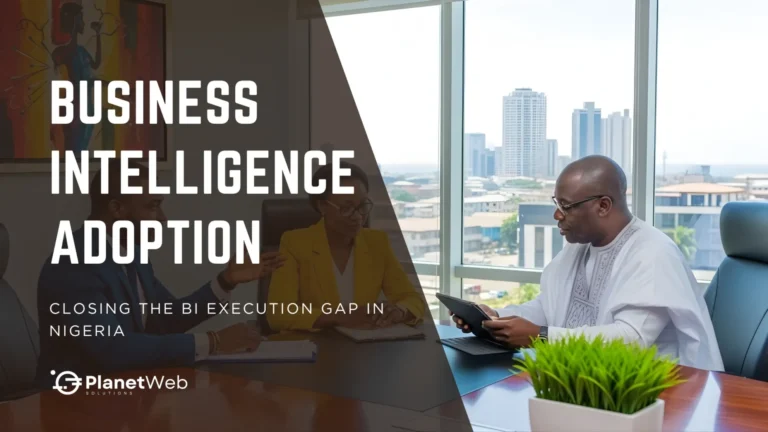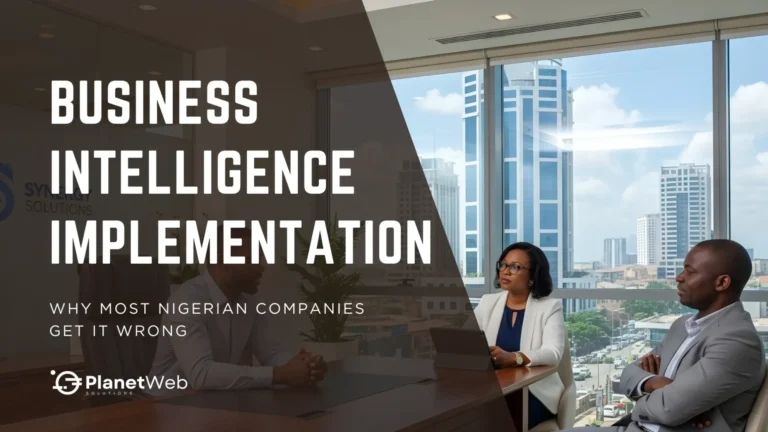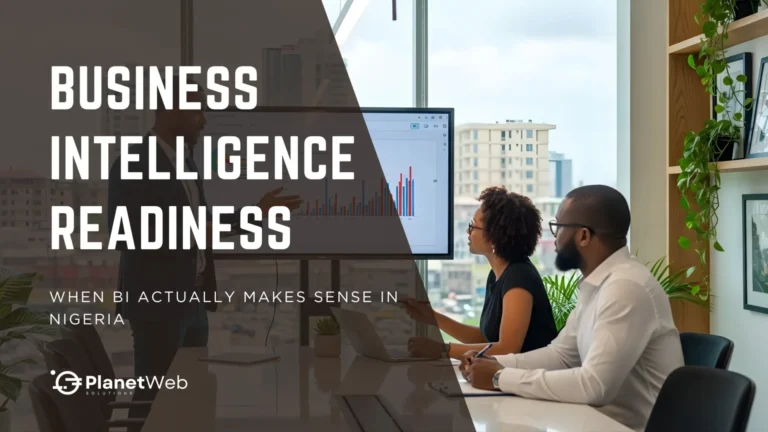GAID Nigeria Data Protection Directive: What Businesses Must Know
Here’s a scenario: You run a business in Lagos. You collect customer emails, phone numbers, and maybe payment details. September 2025 rolls around, and suddenly you’re facing fines up to ₦6 million because you didn’t know about GAID.
Sound dramatic? It’s not.
Nigeria’s General Application and Implementation Directive (GAID) is changing how every business handles customer data. Whether you’re a one-person startup or a growing company, if you collect any personal information, this applies to you.
Let’s break it down in plain English.
⏰ Critical Dates:
- September 2025: GAID enforcement begins
- January 2026: Penalties start applying
🔍 What Exactly is GAID?
GAID stands for General Application and Implementation Directive. Think of it as the instruction manual for Nigeria’s Data Protection Act (NDPA 2023).
The NDPA set the rules. GAID tells you exactly how to follow them.
It’s issued by the Nigeria Data Protection Commission (NDPC) and replaces the older 2019 regulations. This time, there’s stronger legal backing and real enforcement coming.
Why This Matters to You
If your business touches customer data in any way, you need to comply. That includes:
- E-commerce sites collecting shipping addresses
- Fintech apps storing bank details
- Healthcare platforms with patient records
- Marketing agencies managing email lists
- Even small shops using WhatsApp Business
No business is too small to be exempt.
📊 How GAID Compares to GDPR
If you’ve heard of Europe’s GDPR, GAID follows a similar playbook. This is good news if you work with international clients because your compliance efforts can overlap.
Here are the key differences:
| Feature | GAID (Nigeria) | GDPR (EU) |
|---|---|---|
| Enforcement Body | NDPC | National DPAs |
| Maximum Fine | 2% revenue or ₦6M | 4% revenue or €20M |
| Grievance Process | SNAG required first | Direct to DPA |
| Consent Requirements | More flexible for low-risk data | Strict documentation |
✅ What You Need to Do (The Practical Stuff)
Let’s get into what compliance actually looks like day-to-day.
🛡️ Support Data Subject Rights
Your customers have rights over their data. They can:
- Request a copy of what you have on them
- Ask you to correct incorrect information
- Delete their data
- Object to how you’re using it
- Transfer it to another service
You have 30 days to respond. Ignoring these requests can trigger penalties.
📝 Have a Legal Reason for Processing Data
You can’t just collect data because you feel like it. You need justification:
- Consent: For email marketing campaigns
- Legitimate interest: For fraud detection or service improvement
- Legal obligation: For tax records or compliance
- Contract fulfillment: For processing orders
Document which legal basis applies to each type of data you collect.
⚠️ The SNAG Process (Important!)
SNAG stands for Standard Notice to Address Grievance. It’s Nigeria’s version of a formal complaint process.
Before someone can report you to the NDPC, they must send you a SNAG notice first. This gives you a chance to fix the issue.
How it works:
- Customer sends you a written complaint about their data
- You acknowledge receipt within 7 days
- You resolve the issue within 30 days
- If you don’t respond or fix it, they can escalate to NDPC

👤 Do You Need a Data Protection Officer (DPO)?
It depends on what kind of data you handle.
You likely need a DPO if you:
- Process large volumes of personal data
- Handle sensitive information (biometrics, health records, financial data)
- Use AI or automated profiling
- Monitor people at scale
Good news for small businesses: If you’re a small operation with low-risk data, you might not need a full-time DPO. But you still need someone responsible for compliance.
You can outsource this role to consultants or shared DPO services.
📋 Data Protection Impact Assessments (DPIAs)
If you’re doing anything high-risk with data, you need to conduct a DPIA before you start.
High-risk activities include:
- Using AI to make automated decisions about people
- Processing biometric data (fingerprints, facial recognition)
- Large-scale monitoring (CCTV systems)
- Processing children’s data at scale
- Combining datasets from multiple sources
Common sectors that need DPIAs: Fintech, healthtech, e-commerce with profiling, edtech, and HR tech.
The NDPC provides free DPIA templates. Use them.

🌍 Moving Data Outside Nigeria
Want to use Google Cloud, AWS, or any foreign service? You need to check the rules first.
You can transfer data internationally if:
- The destination country has NDPC adequacy recognition, OR
- You use Standard Contractual Clauses (SCCs) or Binding Corporate Rules (BCRs), OR
- You get explicit consent from the person whose data you’re transferring
Most cloud providers offer SCCs. Make sure they’re in your contract.
🤝 Managing Vendors and Third Parties
If another company processes data on your behalf (payment processors, email marketing tools, cloud storage), you’re still responsible for compliance.
Your vendor contracts must include:
- Breach notification within 24 hours
- Your right to audit their security practices
- Clear data processing instructions
- Termination clauses for non-compliance
📁 Keep Documentation
The NDPC expects proof that you’re compliant. Keep records of:
- What data you collect and why (data inventory)
- Your privacy policy and updates
- DPIAs you’ve conducted
- SNAG requests and how you resolved them
- Staff training logs
- Vendor contracts
If audited, this documentation proves you made an effort.
💰 What Happens if You Don’t Comply?
The NDPC has real teeth now. Starting January 2026, they can:
- Fine small businesses up to ₦6 million
- Fine larger organizations up to 2% of annual revenue
- Publicly list non-compliant companies
- Conduct surprise audits
Real scenario: A Lagos e-commerce platform that ignores customer data requests, skips required DPIAs, and has weak security could face both fines and reputational damage.
🗓️ Your Compliance Timeline
Time to get moving. Here’s a realistic roadmap:
March 2025 – Data Audit
Map out what data you collect, where it lives, who has access, and why you need it.
May 2025 – Policy Updates & Training
Update your privacy policy. Train your team on data handling. Review contracts with vendors.
July 2025 – DPO & DPIAs
Appoint or assign your Data Protection Officer. Complete any required DPIAs. Set up SNAG processes.
September 2025 – Registration & Final Prep
Complete NDPC registration. Ensure all documentation is audit-ready.
Visit the NDPC’s official website for registration portals and templates.
🚀 Turning Compliance into an Advantage
Yes, compliance takes effort. But it’s also an opportunity.
Data protection builds trust. One Nigerian healthtech startup saw a 30% user increase after getting NDPC recognition early. Customers felt safer.
If you’re looking to work with international partners or raise investment, compliance makes you more attractive. Investors check for this now.
For Small Businesses with Limited Resources:
- Use NDPC’s free templates and guides
- Consider shared DPO services
- Join industry associations that offer group training
- Start with the basics: privacy policy, consent forms, data inventory
📚 Related Resources
To deepen your understanding of data protection in Nigeria, check out:
- Nigeria Data Protection Act 2023: Key Features
- Data Subject Rights: Your Digital Shield
- The Nigeria Data Protection Commission
- Data Protection Compliance Strategies
- Nigerian Data Breach Case Studies
- NDPA vs GDPR: Global Comparison
🎯 Bottom Line
GAID is happening. Enforcement starts September 2025. Penalties begin January 2026.
The businesses that prepare now will avoid fines, build trust with customers, and position themselves better for growth.
Start with a data audit this month. Update your privacy policy next month. Get registered before September.
Don’t wait for a penalty notice to take this seriously.
❓ Frequently Asked Questions
📌 What’s Next in This Series
In our next guide, we’ll walk you through the NDPC registration process step-by-step. You’ll learn exactly what documents you need, how to fill out the portal, and common mistakes to avoid.
After that, we’ll show you how to conduct a proper DPIA using real examples from Nigerian fintech and healthtech companies.
Want to stay ahead of compliance changes? Subscribe to our newsletter for updates on NDPC guidelines, enforcement news, and practical compliance tips for Nigerian businesses.






